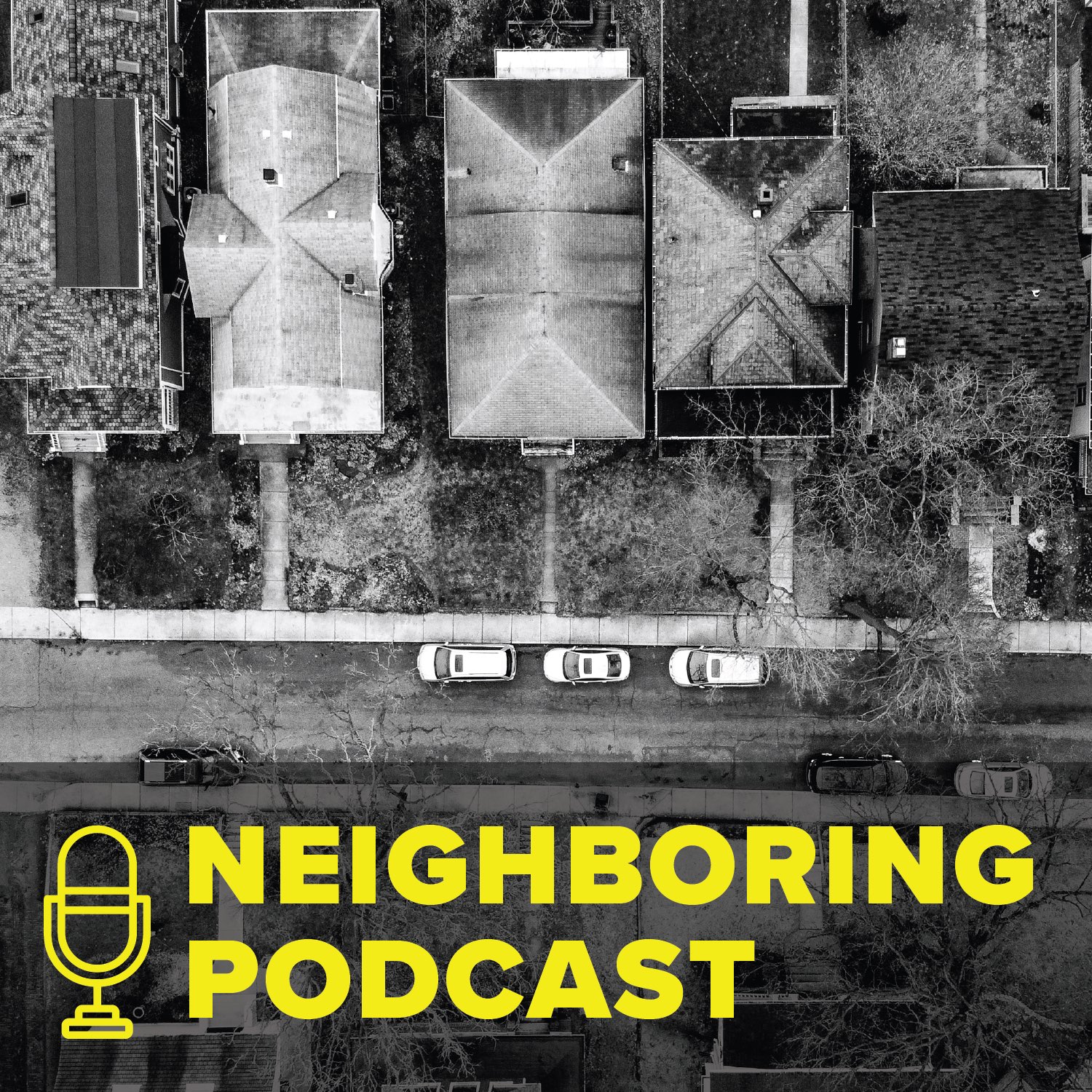Episodes
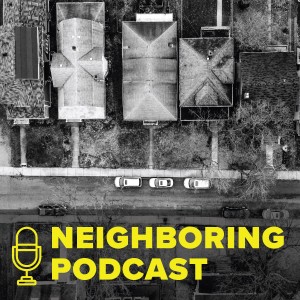
Thursday Jul 02, 2020
Episode 45: Ryan Taylor
Thursday Jul 02, 2020
Thursday Jul 02, 2020

I first met Ryan in 1999 during my freshmen year at Huntington College, now Huntington University. Ryan was a senior and studying ministry while I was just beginning my business degree. We didn’t really spend much time together, but we had close mutual friends and HU was a really small school, so you tend to at least learn about others even if you don’t spend much time together.
It wasn’t until I was several years out of college and moving towards NeighborLink projects, and eventually the director roll, that I began to learn more about Ryan’s ministry trajectory towards marginalized neighbors. Ryan moved to Denver right out of college with his wife to begin seminary, and would eventually become a pastor in a local church there. Ryan shares that as he was pastoring, he was feeling personally lead to deepen his connection to the poor and marginalized in Denver as he dove deeper into learning the scriptures. As he spent more and more time, took more and more people with him, he become very aware that relationship with the poor required proximity and a disciplined approach to keep showing up. So, he kept showing up, building relationships, and getting more involved in a few ministries, like Network Coffee House, which he’s now the Executive Director of. He’s also the pastor of St James Urban Church, guest pastors at various churches, and is writing a book.
Ryan describes the Network Coffee House as the “living room” if you can imagine homelessness services as a house. Just as you’d imagine a soup kitchen being the “kitchen” and a rescue mission being the “bedroom.” Network is providing a safe space where unhoused neighbors can find respite from the streets of Denver to have a peaceful place to sit, have some coffee, use the bathroom, and even take a shower. There are no programs, just a safe place with people that want to sit and get to know those currently unhoused. Here is a great clip from the Network website that illustrates the focus.
“Somehow, as we become friends with people who are seemingly very different from ourselves God helps us get to know Christ & ourselves better. This is a vision of solidarity.
We believe that chronic homelessness is largely a product of the way people bond or attach. Economics is a secondary phenomena—homelessness isn’t bad, just different. Jesus was poor by any American standards. We are all poor in one way or another—our discomfort with poverty is something each of us wrestle with.
Creating a place for relationship? A long time ago the world was created as a place for redemptive relationships. Then Jesus came along and reiterated to his friends, “I’m going to prepare a place for you so that you can be where I am.”
I see the opportunities we create at NeighborLink in a very similar light. It’s about relationships, not just projects or fixing things. It’s about moving towards the margins so that God may reveal more about himself through others different than us. Ryan and I talk in the podcast about the language we use to describe vulnerability and social services. Changing the terms from “homeless” person to “unhoused” person can seem trivial, but it makes all the difference when you’re trying to right-side the power dynamic and embrace the reality that God has created us all equal and given us different vulnerabilities, gifts, and strengths. Do this work for very long and you realize the shift of vulnerability in life can happen quickly leaving us no better off than those we once were trying to help. The more closer you get to people different than you, you find yourself searching for more dignifying language to better describe the situation they’re in rather than labeling them as a condition.
One of the things that I hope comes through in this podcast is how Ryan’s journey, and that of his family’s, has taken time to develop and play out to this point. Ryan shares about the discipline at times required to show up day after day, week after week, and to put yourself in what is not a natural state of place for many of us. In doing so, it becomes less about fixing others, and more about becoming neighbors and friends with those that you meet so when the time comes to help or advocate on their behalf, you have no other choice to help because you “feel” it just as much as they do because it’s happening to you too.
Listen in to the end to hear the encouragement Ryan has for us as well.

Thursday May 21, 2020
Episode 44: Eric Lerew
Thursday May 21, 2020
Thursday May 21, 2020

I’ve been getting to know Eric Lerew over the past year or so as our worlds overlaps in many ways professionally. Eric is a kind, engaging guy that loves the local Church, loves people, and really has a heart for being a good neighbor that is an outflow of his personal and spiritual journey. It’s a passion he shares with his wife and family as well.
I don’t meet too many leaders like Eric who communicate and lead from a deep place of experience when it comes to this idea of neighboring as a Christian who can effortlessly weave in their pastoral experience as a former church leader. Eric shares in this episode just how important experience is to leadership, and how one develops a passion for the neighborhood and neighboring over time and in relation to ones personal investment in the process. Eric reminds me of this lesson that you cannot lead others to place that you’ve not been before and aren’t regularly spending time there. Leadership is as much about an invitation to come with as it is a declaration of where we’re going, and that is certainly true for the concept of neighboring.
Neighboring can be an extension of one’s understanding of church missiology and often a physical or tangible expression of faith. For many church-going individuals, this is most often expressed as short-term global mission trips, regular local volunteerism efforts, and neighborhood based evangelism crusades. For those participating, it’s a way to have a practical experience to explore the call to love our neighbors through scripture. The more personal the missional experience, the more transformative, and the more often, the more likely it begins to affect ones lifestyle and future time investments along with economic choices. If you stay with it long enough, it begins to change your worldview and hopefully broaden and sharpen your theological understanding of what being a Christ-follower really looks like. This is as true for corporate church mission efforts as well. The more you invest, the more you experience, and the more the Lord invites you to transform. And, the less it looks like “doing things” and more like an integration of everyday life.
This is not a simple process, especially for the corporate expression of church. There are deep and energizing feelings associated with ideas around “churches on mission.” Some believe that the Church is the only hope to community transformation. Some have left the church and are so frustrated with the lack of action and ability to bring transformative hope that they understand to be the central core to who God is asking the Church to be for the vulnerable. Some believe so strongly that Church is about relationship with the poor that their corporate expressions involve as much community engagement as meeting together in a building. Some believe that prayer and salvation is the answer to all social ills and if we had deeper faith, we’d be in stable positions. We could list a hundred different statements that align with the feelings of what the “Church” should, is, and could be.
The hope lies in the reality that we don’t need a “Church” to help us be good neighbors and learn what the Lord has to teach us about His love for us and others. Eric shares that we are a “sent” people and that we’ve all be called to this mandate of loving one’s neighbor independent of a corporate expression. So, be sent. Use transactional service to learn, engage, and help. Then take the lessons you learned and simply begin getting to know your neighbors personally. Invite them to help you before you offer to help them. Eric share that he believes being a good neighbor involves ensuring you know the names of your neighbors and beyond that, know what their life wishes, frustrations, fears, and anything that weights on them in life. Get to know your neighbors in personal, friendship like ways and then increase your boldness to ask simple faith-related questions if your desire is for them to know Jesus as some point. If not, just figure out ways to love them in a personal way. Then, be ready to be transformed and loved by others more than you ever feel like you’ve loved them.
I respect Eric’s ability to navigate this tension as both a Christian leader/pastor and as an individual that is passionate about being the best neighbor he can be. We have a great conversation about these tensions and bring hope that tangible expressions facilitated through church-based mission can lead to a greater awareness that one can neighbor and be on mission every day on their own, in their own neighborhood, and that it’s easier than one thinks. As long as you have a bit of courage. Eric shares some great stories from his experiences and has great encouragements of how this can look no matter the context in which you live. You don’t have to move into a low-income neighborhood to have an impact.
I appreciate the tension that conversations like these can create because it gives us all opportunities to grow and have our faith more integrated in our daily lives. Those that I know that would say they embrace neighboring as a part of their faith journey would share that it’s no longer a thing to do like when they first began trying to incorporate it in their lives, it’s now just part of them. It’s just a journey to be the best neighbor and human they can be.
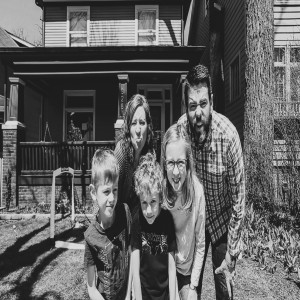
Thursday May 14, 2020
Episode 42: Neighboring With Kids
Thursday May 14, 2020
Thursday May 14, 2020

My favorite guest agreed to join me for an episode to talk about our kids, how we’re trying as parents to create an environment of being good neighbors, and how we feel more blessed by our neighbors than we are blessing them. Michelle and I have been on personal journeys to figure out how to orient our own lives around serving and helping others since before we met. Michelle had wanted to be in the social work field since she knew what she wanted to do as a kid, and has spend her entire professional career as a clinical social worker in a local hospital working with kids. I wanted to be in advertising since I really had any idea of what kind of career beyond being a professional dirt bike racer as a kid, but found life, purpose, and vocation crashing together in my early 20s, which led me towards NeighborLink. We may be a bit down the road in this, but not that far. Trust us, you can do anything we’ve done at this point.
Michelle and I actually met on a NeighborLink project being organized through our church and we’ve been serving together ever since. The activities of service really led to us continuing our personal and collective journey of how this becomes a lifestyle, not a series of transactions that we schedule, prioritize, and then complete. Although transactional activities are a part of neighboring and a part of getting our family involved. But, the more relational and connected we’ve gotten, the more this outflows of who we’ve been transforming into as people.
Sounds idyllic right? Well, it’s not as glamorous as it sounds in a few words on a blog post. If anything, we talk more these days about how others bless us more than we are blessing them. The more personal and relational it gets, the more sensitive we’ve become to this whole discussion because it’s not as easy as just wanting to do good for others. You can’t just show up on someone’s doorstep and declare that you’re there to help them, especially if they’ve not asked for it. That gets awkward, real fast.
Neighboring is a process and philosophy that requires others, not just what one does for others. It requires vulnerability, being available as you can be, and a willingness to move on our gut and be able to receive when offered. Neighboring is a collective effort, not just an individual effort.
This episode is about our family and how we’re trying to ensure we incorporate our kids into as much as we can at home, in our neighborhood, and within the organizations we love while listening to them about the things they’re beginning to see on their own. As parents, we have a vision for our kids to grow up being kind, generous, aware of others, and willing to do what isn’t being done or to stand up for those being oppressed or who have vulnerabilities. Big vision, I know. But, we think it is possible and now is the time while they’re young to model that to them and incorporate them into as much as we can.
That has looked like buying kids tools such as brooms, snow shovels, and rakes to help at home and as we go around the neighborhood to help others. It’s us taking them out on NeighborLink projects or volunteer opportunities that welcome kids to help or at least be present with us as we help. It’s having discussions on our family walks about who we can pray for or respond to something that we picked up on in conversation with a neighbor we said hi to. That’s led to them suggesting us take cookies, write cards, and even offering to help with something more tangible. When they have an idea, Michelle and I really try to respond rather than saying no or brushing it off, which requires mindfulness on our end. We’re now trying to incorporate them into giving donations to orgs, which is a work in process and has led to one of our boys wanting to find a “King Cobra Snake Rescue” organization to give some dollars to. Michelle is likely to shut that one down!
The reality is that we’re not pros at this, get it wrong as much as we get it right, and are daily shown what neighboring is all about by our neighbors or those we’re serving more than we feel like we’ve helped or shown them. We had some neighbors recently bring a plate of hot brownies down to celebrate our daughters birthday. We’re just getting to know them and a simple “happy birthday” would have been great, but they came down with brownies and sung to her. That’s neighboring and we were the recipients. Our daughter was the recipient of kindness and we know that it left a mark.
Neighboring is about relationships and relationships get formed over time. They always require effort and an openness on both sides. We’re simply trying to be open to those we encounter. For us, we’re just trying to be present and open. We let the Lord lead us from there.
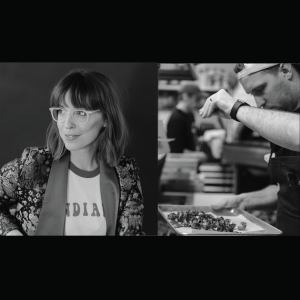
Wednesday May 13, 2020
EPISODE 42: IMPACT OF LOCAL SHOPPING
Wednesday May 13, 2020
Wednesday May 13, 2020

The push to shop local has steadily increased over the past decade as we’ve recognized that culture drives the market. If our communities lack cultural institutions, who are we, really? Fort Wayne has been evolving and growing in culture as small business entrepreneurs launch their dream businesses that range from boutique plant stores, creative home goods, women clothing, and brilliant local restaurants and breweries. These places provide the goods and services we want while providing an opportunity to build a relationship with a neighbor that has the expertise you need or want to go along with your purchase. They are providing an opportunity for a culture to be built around their business model, which can’t be reproduced in an online environment. The internet will never be as excited about your new “Midwest is Best” hat as the buyer or creator in the store you purchased it in.
Good community development strategies begin with building the civic economy because the market always follows culture and people. Right now, this culture is being threatened and needs our market based activity now more than ever. Maybe, the premium of shopping local is what saves local. If we don’t support local now, it may not return for awhile. Certainly not in the same way, with the same people. However, I do believe its not only on us as consumers to save the local business network. It’s just as much on them to be investing in building community right now. Inviting us in, being transparent, and doubling down on their customer service efforts. In many ways, now is the time for local businesses to prove the value proposition of being a people-oriented businesses that they’ve been trying to get our attention with for the past decade.
The internet is a powerful tool that makes commerce a lot easier in many ways, but it has been disrupted at this time as well. In many ways, it is making it harder to get what we want in rather than easier. It’s been far easier for me to trade Facebook messages with the local hobby shop about RC car parts for my kids toys than it has been to shop online. Plus, I can get those parts the same day and gain some quick tips for repairs. YouTube tutorials only help so much.
This is not a direct conversation on the proposition of local business versus the internet or non-local food chains, but a conversation about how shopping local impacts the community as a whole. Kristin Giant breaks down the economics of shopping local while providing a few great stories of how she’s getting people involved in thinking differently about considering consumer decisions as investments. As you begin to expand your knowledge and worldview on this, it begins to make sense in a whole new way. Kristin brings a lot of energy and practical experience, and her voice is as important today for our local community as ever. We may not all be charitable, but we are all consumers. Incorporating as much “good” into your consumerism as possible is a great decision for local businesses.
It’s one thing to talk about ideas and another to hear whether it actually makes a difference. I couldn’t have this conversation without having a voice on the other side of this. Andrew Smith of Junk Ditch Brewing Company shares their story of how difficult this time is. With business being off about 60% at the time of this interview, it is hard not to be worried about the future. But beyond the economics, Andrew shares the personal impact on his staff from changes in operations, increased risk exposure, and what’s been most meaningful to everyone.
Crisis has the ability to bring people together in unique ways and I imagine we’re in for some stronger and more community minded businesses in the coming months. If you’re fortunate to get through this pandemic personally or as a business on a positive note, you are going to be thankful for those around you that helped you through this more than you ever thought possible.
Our community can be stronger if we invest in it. The civic economy drives the market economy.
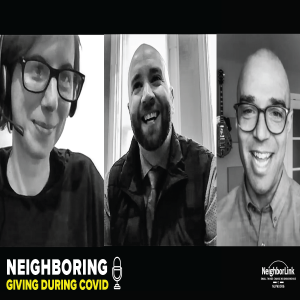
Thursday Apr 30, 2020
Neighboring Ep 41: Local Giving During COVID
Thursday Apr 30, 2020
Thursday Apr 30, 2020

Kicking off Season 3 of Neighboring with a discussion on what giving and philanthropy looks like through the lens of a donor, a major connector of funds, and an organization that is a recipient of emergency funding. There are individuals in our neighborhoods that are currently in a stable financial position looking for ways to redistribute their resources and the Stimulus checks, but have questions how to make personal and impactful donations. This podcast follows a conversation around some giving questions, the various opportunities at various scales of giving, and how those funds are having a direct impact on a local nonprofit serving the refugee and immigrant community in Fort Wayne.
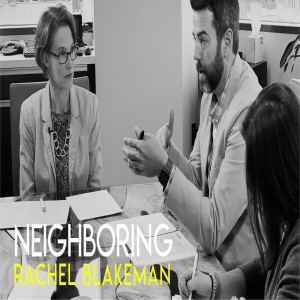
Thursday Nov 07, 2019
Episode 40: Healthy Neighborhood Research Review with Rachel Blakeman
Thursday Nov 07, 2019
Thursday Nov 07, 2019

For the past 15 years, NeighborLink has met the needs of vulnerable homeowners with volunteer service. Just since November 2010, NeighborLink has completed over 7,554 projects in Fort Wayne. That means we’ve heard over 7,554 stories and accomplished over 7,554 acts of kindness. This also means NeighborLink has had an intimate glimpse into the inner-workings of neighborhoods through being a neighbor and connecting its neighbors.
This glimpse has exposed some fundamental questions:
-
Why do neighborhoods differ so drastically from block to block?
-
Why does the media seem to report negatively on some neighborhoods more often than others?
-
Why does economic and community development seem to forget certain parts of the city?
-
Why do the desires of the neighborhood residents often differ from the prescription of outside experts?
All of these questions have distilled down to one main question at NeighborLink:
What makes a healthy neighborhood, healthy?
Perceived ‘healthy' neighborhoods are ones with positive attention, ones where economic development and community development is occurring, but how different are these neighborhoods really from other neighborhoods? We wanted to find out whether the neighborhoods many consider ‘unhealthy’ have the same characteristics that the ‘healthy’ neighborhoods have, and if not, why not. To accomplish this we have undertaken a two year study of five different neighborhoods in Fort Wayne.
We, at NeighborLink, are committed to increase our capacity to foster long-term change by equipping and empowering neighbors to know and help each other. The only way to accomplish this is to get to know these neighbors ourselves. We need to know more about their neighborhoods, what motivates them, what they think their assets are, and what they believe they really need from outside help.
In an effort to answer this question, we contracted Purdue Fort Wayne's Community Research Institute to partner with us on a comprehensive research project that gathered relevant quantitative data about each neighborhood and combined it with the qualitative data collected through various neighborhood meetings and interviews we held. This podcast is an interview with CRI Director, Rachel Blakeman. We give an overview of each neighborhood, key facts and insights from each, some thoughts on where this research fits in with other projects locally, and the lessons we are learning as a result of the research. If you find neighborhood development interesting or want to a deeper look into a few Fort Wayne neighborhoods, I think you’ll enjoy this conversation.
Neighborhoods Researched:
-
Hoagland Masterson
-
North Highlands
-
Pettit-Rudisill
-
West Central
-
Williams Woodland Park
THANK YOU
This project was made possible by a capacity building, Inspire Grant from the Foellinger Foundation. This report outlines our learnings from phase one of a two part research project and will informal the direction of phase two to be announced in early 2020.
To learn more about Phase 1 findings, you can download the reports below.
Download the NL Summary Report Here:
For The Full Report - Please Contact Andrew Hoffman at Andrew@nlfw.org
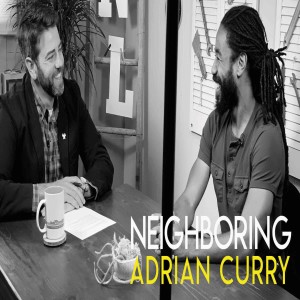
Thursday Oct 31, 2019
Episode 39: Mr. Adrian Curry
Thursday Oct 31, 2019
Thursday Oct 31, 2019
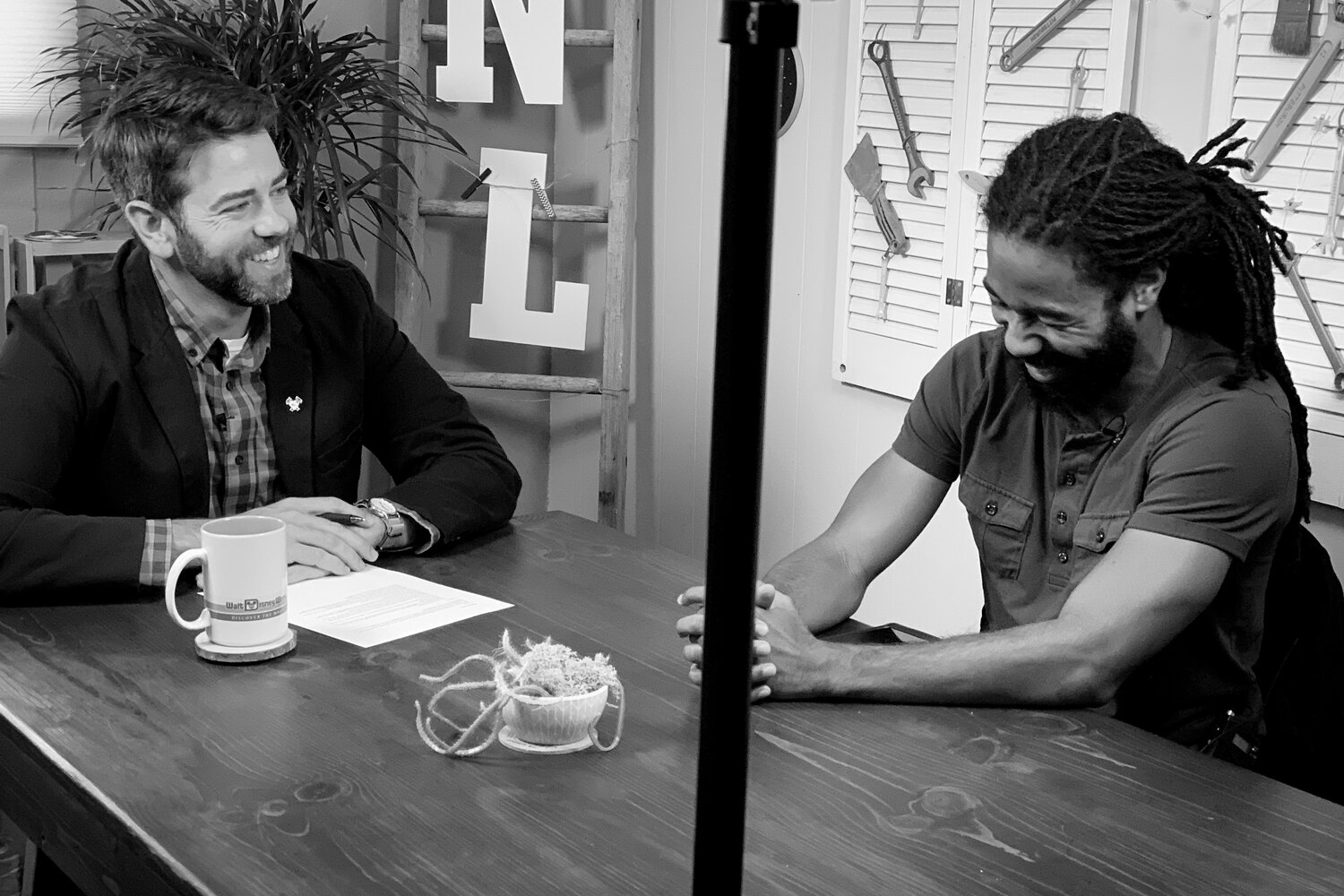
I met Mr. Curry in person for the first time back in August of this year on the Inner City Visit to Louisville, KY were both invited to join by Greater Fort Wayne. We introduced ourselves in the parking lot of a Flying J rest stop half way to Louisville. From that brief interaction, I knew I needed to spend some additional time getting to know Mr. Curry as we talked briefly about relational engagement, listening to neighbors, and the high level neuroscience of social connectivity. I’m a thinker, observer, and learner by nature and when I meet people like Mr. Curry, I feel like I find a new friend.
We spent some additional time together on that trip, including catching dinner together where we discussed heavy justice related topics, the feelings of not being understood, the often mis-aligned relief and aid efforts of well intentioned development, and visions of how to approach community building differently. The only thing we solved that night was that we appreciated each others pursuit of knowledge and commitment to their work, a recognition that the work we do is hard but necessary, and that we should connect more.
This podcast is a continued pursuit of getting to know Mr. Curry, what motivates his work, and how his approach to youth development feels like a breathe of fresh air. Mr. Curry’s innate curiosity and commitment to find answers to the massive questions he asks continues to awake himself to the greater story that he is finding himself in. Mr. Curry spends quite a bit of time talking about the significant moments throughout his childhood that broadened his worldview and set him on a pursuit of deep scholarly knowledge, cross cultural and artistic experiences, and global pursuits to learn from others.
For 29 years old, Mr. Curry has experienced more than many of us will experience in a lifetime and he’s just getting started. I imagine that Mr. Curry is often misunderstood, but I think many of us just haven’t gone on as deep of a dive into our curiosity, our history, and are willing to dive into the complexity of brokenness that exists in our community and in our own lives to be able to hang onto Mr. Curry’s perspectives. I’m taking away from my conversations with Mr. Curry a deeper desire to dive in deeper rather than to pull away as I know I have a lot to learn by being present in complex conversations rather than allowing what I don’t know to scare me away from them. Lean into it.
What Mr. Curry is doing with the Art Leadership Center, his relatively new company that takes a fresh approach to youth development is really inspiring. Adrian’s approach to youth development is “designed for the systematic development of leaders of character with a global conscience that serve underdeveloped and underrepresented communities Nationally and Internationally.” Mr. Curry is taking all that he’s learned from the youth centers that impacted his life, his perseverance through his own personal struggles, his global travel, his neuroscience and psychology education, and his extensive step dancing background to teach kids about holistic health that comes through learning, application, and discipline.
I first saw Art Leadership Center in action at a Black History Month Celebration earlier in 2019 and you can tell the approach is having an impact. If you’ve not seen the students and Mr. Curry in action, I would recommend you check out their schedule and prioritize it.
Mr. Curry, thank you for being you and spending time with me. I look forward to our friendship growing. I’m wishing you all the success and collaborating in some way to bring life, joy, and celebration to neighborhoods in Fort Wayne.
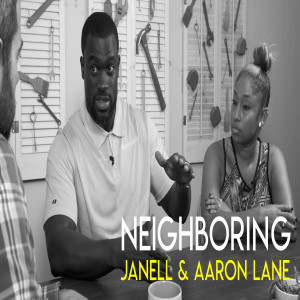
Thursday Oct 24, 2019
Episode 38: Janell & Aaron Lane
Thursday Oct 24, 2019
Thursday Oct 24, 2019

I could spend all day with Janell and Aaron Lane on a weekly basis because of their passion for the place they call home, the people they work with, and their commitment to addressing what I think are justice related issues. We’ve met a number of times briefly to get to know each other, but this podcast gave us a great way to get to know each other in a deeper way. We talked about growing up in southeast Fort Wayne, their educational and professional journeys, and why they’re so committed to working there.
When we think of community development, we often think about the built environment and the big issues programs aim to address. People are always a part of that, but they’re usually represented in data or the input meetings. Rarely is community development in traditional terms about the developing of the people first, which is why I find the work of Janell and Aaron so impactful and why I’m intrigued by their employer’s commitment to empowering them to do it.
They work for Parkview Hospital and hospitals obviously care for the wellbeing and health of a community’s residents, but not many are being as proactive in going to residents with community health related solutions. Parkview is certainly not the only hospital that does this, but in our area, they’re leading the way with initiatives like the Community Partner Development Center (CPDC).
Four years into their work now, Janell and Aaron are finding their stride and making an immediate impact in the lives of those they’re working on. Simply showing up, asking how they can help, asking what’s missing, and then following up in an one-on-one or small group format makes a huge difference and has been missing in many ways in the southeast. Aaron is helping with personal, professional, and sometimes spiritual development of indigenous leaders among a dozen other initiatives. Janell is leveraging her mental health professional background to bring attention, create safe spaces, and make progress in addressing mental health issues prevalent in African American communities among a dozen other things she’s leading.
If you get anything out of the conversation, I hope you’ll pick up their calling and sense of responsibility as two individuals to serve in an area they grew up in. The trend in socio-economically challenged areas is to get educated, find a way out, and never return other than to visit family that may still live there. Rarely do people come back to an area to live, work, and invest. For some it’s because they want to leave behind the challenges they faced and still present in the area, and for some like the Lanes, it’s because the area isn’t capable of meeting their family’s needs. However, they are committed to making sure the opportunities grow for those they know that live there and for future generations to have a better place to come home when considering where they’ll land to raise their families.
I really look forward to continuing to build a relationship with the Lanes. I’ve got a lot to learn from them and really enjoy just being in their presence. We all need more people like Aaron and Janell Lane in our lives if we care about improving the holistic health of our neighborhoods.
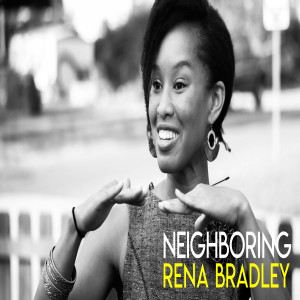
Thursday Oct 10, 2019
Episode 37: Réna Bradley
Thursday Oct 10, 2019
Thursday Oct 10, 2019

I appreciate Réna Bradley greatly. This podcast solidified that reality as I learned more about her background, the intentionality of her past work experience, and her boldness in how she goes about her work. Most of all, I’m so encouraged by how she integrates her faith throughout all she does at Bridge of Grace.
You may be familiar with Bridge of Grace, but you may not be as familiar with Réna unless you work directly with her on a project or two. Loved by two incredible parents, training as a architect, and driven by her desire to transform neighborhoods through relationship, the transforming of the built environment, and the integration of faith, Réna is an asset to the Fort Wayne Community.
Réna moved to Fort Wayne in 2015 after responding to a job opportunity posted by Bridge of Grace via the Christian Community Development Organization (CCDA) who at that time was looking for a program manager for a specific program. Réna got to know the organization and during the interview process communicated that maybe what BOG needed was someone that focused on the transformation of the neighborhood, and that someone ended up being her.
Réna currently serves as the Community Development Director and oversees many of the projects that engage neighbors and neighborhood youth in transforming vacant lots into mini-parks through an intentional program that teaches kids the entire process of building something in a community. They identify the opportunity/need, come up with the vision, define the solutions, get approval for those ideas, gather the resources, and then participate in turning a vacant lot into something beautiful and useful.
Réna and I talk a lot about her journey to Fort Wayne, what it’s like being an intentional neighbor, how to share out of our abundance, and when you go from work life balance to work life integration. She’s a beacon of light to her neighbors and has created a safe place to be known, cared for, and believed in. That spirit is transforming the social connectivity in her neighborhood and is beginning to see significant fruit in other more complex issues, like crime reduction, housing development, and youth development.
I encourage you to listen to get to know Réna better, visit her at Bridge of Grace in the SE side of Fort Wayne, and get involved however you can.
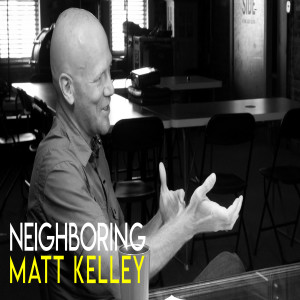
Thursday Sep 19, 2019
Episode 35: Matt Kelley
Thursday Sep 19, 2019
Thursday Sep 19, 2019
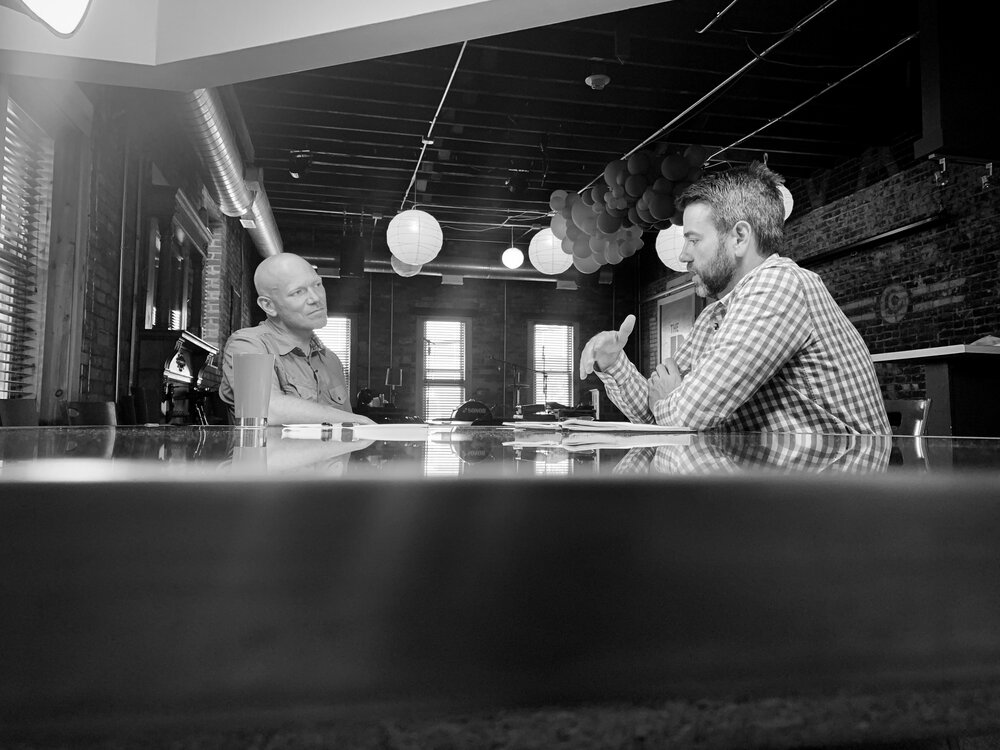
Ask anyone that knows Matt Kelley at all and they’ll likely tell you that they want to hang out with him more often. I’ve thought about trying to learn guitar just to be able to do that. Matt is personably, confident, intelligent, and has the experience and work ethic that backs up what he talks about. Matt and his team at One Lucky Guitar, a boutique creative agency in Fort Wayne, are some of the most on-point creators in our region, which is why they’ve been hired by many of the regional and local community and economic development organizations over the years. They simply know Fort Wayne and NE Indiana better than everyone because they’re invested and live it every day deep in their souls.
Matt and I are personal friends and sit down regularly to talk about the role of taking initiative and making sure everything we do is as meaningful and intentional as possible. We just don’t like to waste time doing things that don’t matter nor do we like sitting on ideas that we feel deep in our guts that we should be doing something about rather than talking about. We feel our work deeply and this is a conversation about work-life integration, doing meaningful work, and creating things no matter how big or small they may be.
We both believe some of the most meaningful experiences we’ve had are the small shows, athletic events, or the things that happen in the margins of our community. I’m constantly inspired by Matt’s tenacity, his vision, and his ability to get so many people to go on the journey with him towards places they would have never imagined going. Matt’s always going some place and if you have the opportunity to go on that journey with him, hang on no matter what it is because you’re going to learn something or you’re going to have an incredible experience, even if it’s not as successful as you thought it would or should be.
Matt encourages us to take the ideas off the shelf, put some energy behind it, and see what happens. I think there are so many of us that have incredible ideas for events, initiatives, or products that we’re scared to do anything with because we don’t quite have the full picture of success. The success is often in just getting from idea to action, and we need your ideas way more than you think. Give it a listen and let me know what you think.

